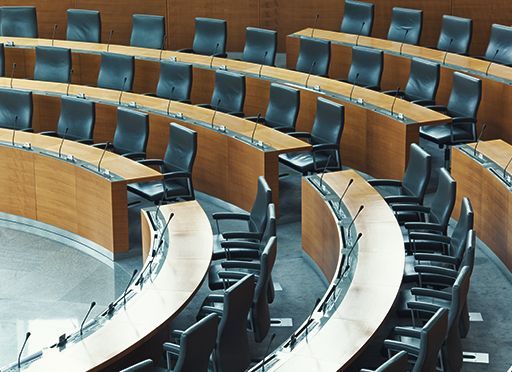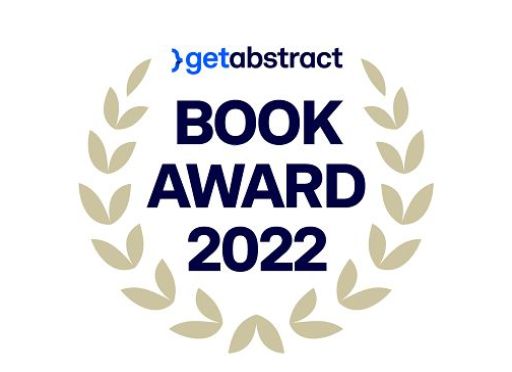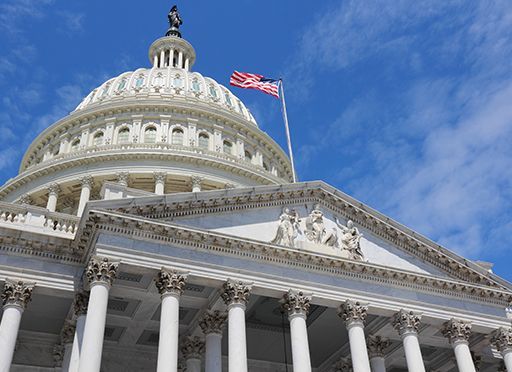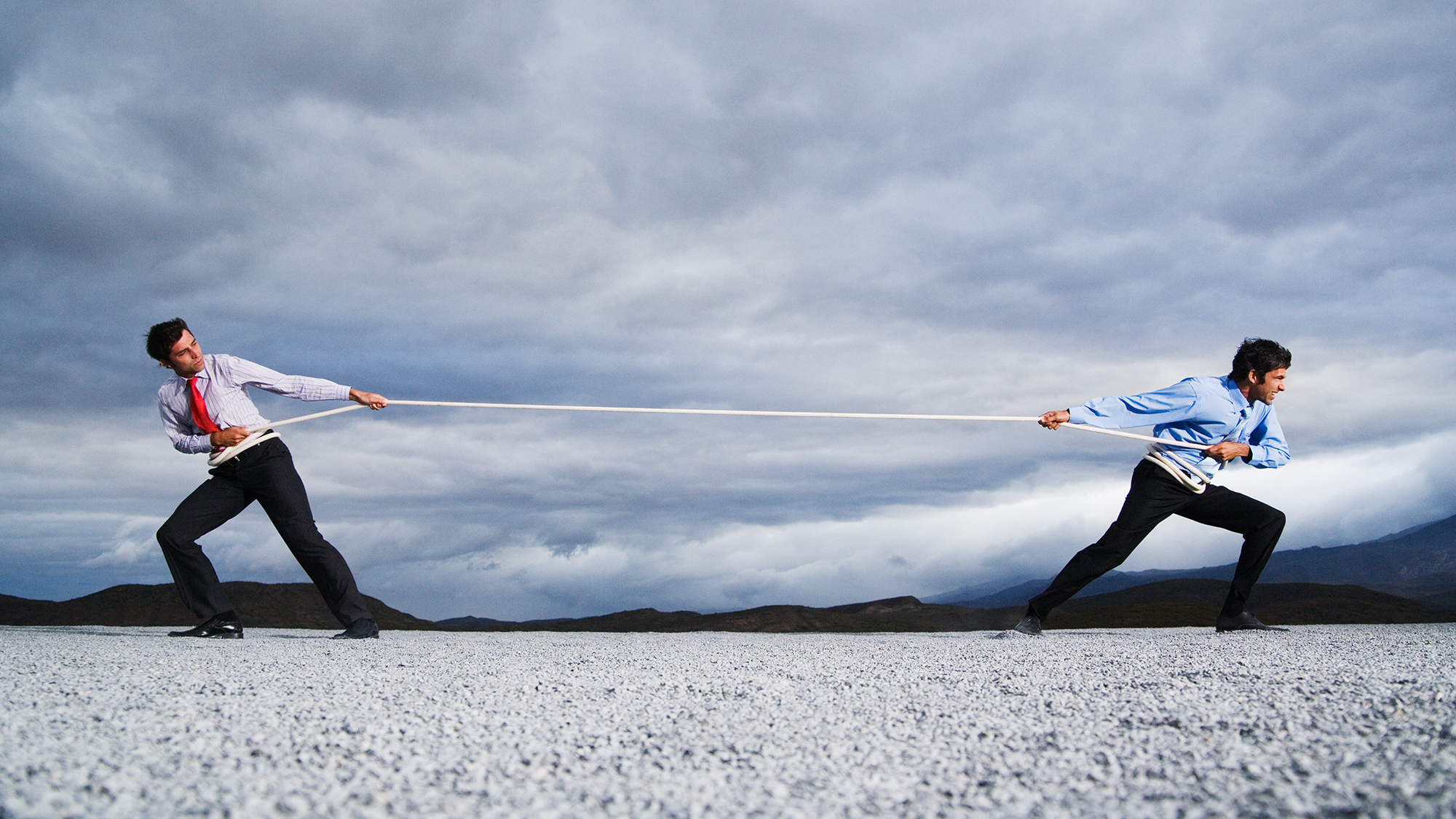“People Are Angry Because They Feel Their World Views and Values Are at Stake.”
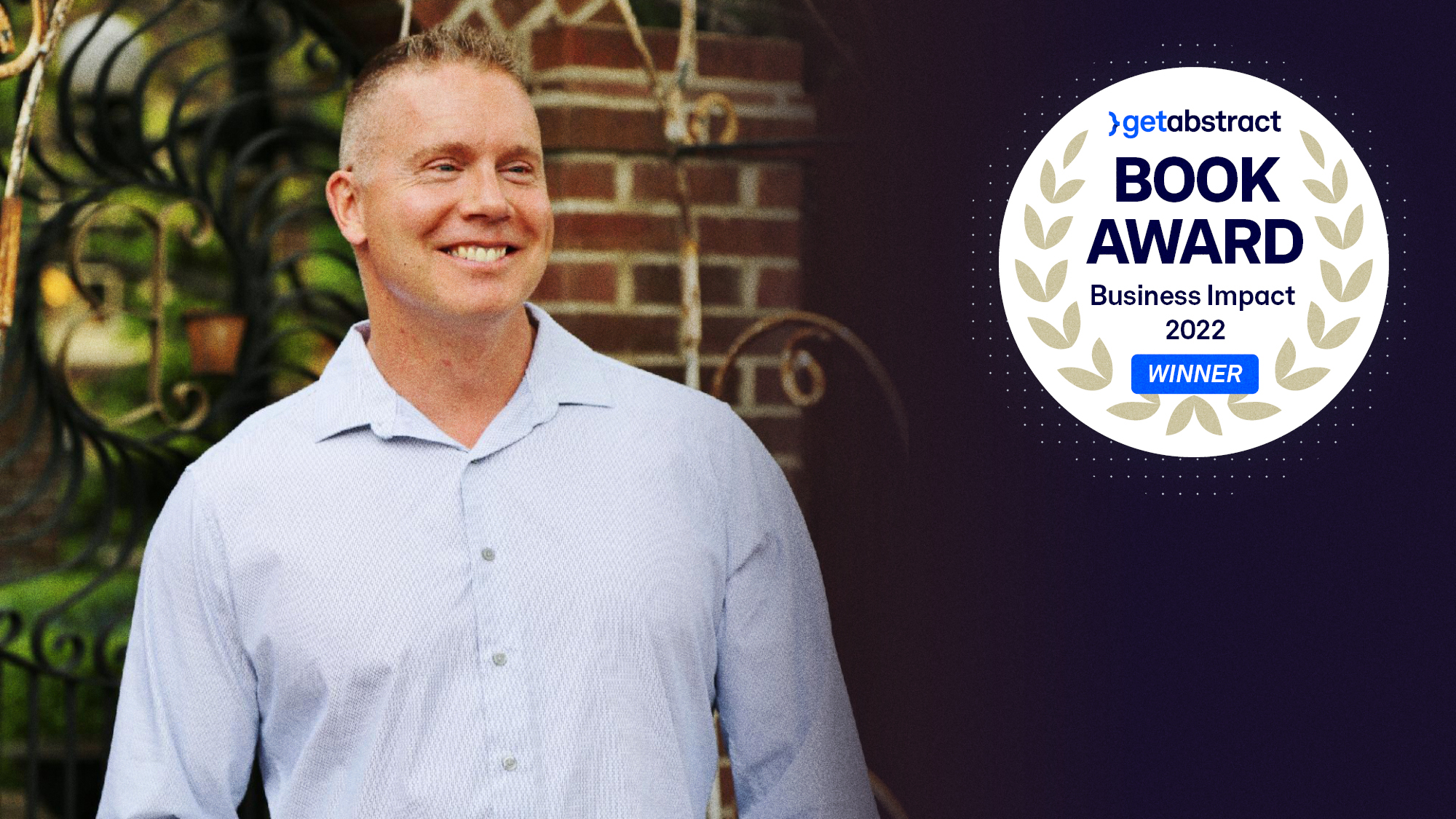
Terry couldn’t believe it. The U.S. citizen was sure that SNAP recipients were living in luxury at the expense of honest taxpayers like himself. So before he tried to live on it for two weeks, he declared that he would eat steak every day, just like those freeloaders who just had to get a job. But after the experiment, he confessed, “I cheated. The budget just wasn’t enough.” The whole experience “surprised” him. And that wasn’t all. After that, he read up even more on how to survive on minimum income.
Terry is one of many Americans who participated in one of Michael Carolan’s experiments: They lived on food stamps, harvested strawberries, and met people living in the disconnected hinterlands. And in the process, they had experiences that made them doubt their worldview, which made them more open – and more empathetic.
Michael Carolan’s collection of studies, experiences and stories in A Decent Meal is a reaction to the extreme social polarization in the U.S., which peaked with the storming of the Capitol. Knowledge of this disintegration, however, only appears in passing in his work – his main concern is how to stop the process. The sociologist does not think about big solutions, structural reforms or laws. For him, the focus is on the individual and the question of whether and how to get through to them. The book is a profoundly humanistic response to a tremendous humanistic crisis.
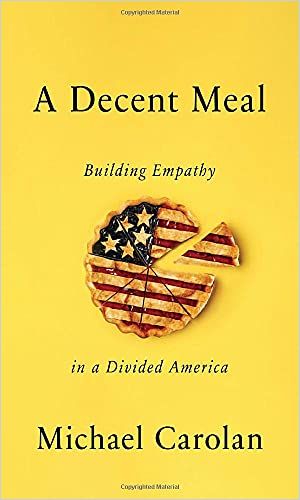
Michael, your latest book is called A Decent Meal. What is a decent meal for you?
Excellent question! No one has ever asked me that before. I would say a decent meal is an experience. And that’s the reason why I built my book around food. On the one hand, food makes people feel secure, but on the other hand, it also makes us curious: we need it to survive, so we want to know where it comes from and who produces it. Moreover, food is disarming – it depoliticizes situations. We know from neuroscience, psychology, and sociology that our belief in rationality and democracy rests on a wrong assumption: that we can settle controversies by talking about them rationally. That doesn’t work because what we think is reasonable depends on our social position and cognitive filters. But food can short-circuit such reservations.
People are more open when they eat, so new information reaches them more easily. They are then more willing to reevaluate their worldview and rethink how they see things and what they want. In short, they are more open to change.
It sounds like we need to start beyond words when talking to each other…
Yes, that’s true. You often hear that empathy comes through conversations and facts because then we can better understand the situation of others and empathize with people. But in my experience, empathy comes first. Only after that follows understanding. Physical experiences change our worldview and even our thinking.
Was that your thesis when you started this book?
When I started the book, I had countless individual observations and personal anecdotes. I’m sure you know someone who has belonged to a political camp for a long time and then experiences something that suddenly wholly changes their worldview. Think of people who were always against same-sex marriage – until they discovered that one of their children was gay. I wanted to understand stories like that. And then things took off with my strawberry study, which is in the book. I gave a dozen people from the middle and upper classes information, texts and films about strawberry picking and the immigrants who do this work. Then I let the people pick strawberries themselves for a day. I realize that no one from the white middle class can really understand the life of an immigrant in California. But I wanted to know if I could give them an idea of it with this experience.
So, the method works?
It does. And it was most evident in the pictures. I told the people just before the harvesting operation to take photos throughout the day. And it was amazing how the images changed over those 24 hours. In the beginning, they were taking pictures of the landscape and taking selfies – funny but meaningless, and precisely what you would expect. Later, however, everyone took at least one photo related to the physical experience, to the drudgery. For example, photos of caps turned inside out, so you could see how sweaty they were inside. The selfies also showed mostly sweat or dirty fingers and knees. Afterward, I asked the participants how they felt. And one experience stayed with them for a long time: how hard the work is.
They said they couldn’t imagine people making a living doing this. So from then on, I asked myself whether such experiences can generally lead to more empathy.
In your book, other people try to live on welfare and are surprised at how low it is. When you look at their last regular income, those social classes weren’t that far apart, but now they are deeply separated. Why is that?
To some extent, it has to do with social networks that are becoming more and more homogeneous. In social science, we call this social homophily, the tendency to gravitate toward more and more people who look like us, think like us, pray like us. But it goes even further. People move to areas where others live who are like them. So, for example, in the U.S., people who tend to be on the left politically prefer neighborhoods where many things are within walking distance and there is a lot of culture. On the other hand, people who tend to the political right appreciate the wide open spaces because they like to hunt and are interested in religion, but not necessarily in foreign cultures. Over time, this leads to an inevitable separation of these groups.
Your book is about how these deep chasms can be overcome. Do you remember a candidate in your experiments who particularly touched you?
A gentleman from the Strawberry Study comes to mind, who I also find fascinating because he has come such a long way. He has a large Celtic cross tattooed on his back, which in the U.S. symbolizes white supremacy. He clearly didn’t care much for immigrants or people of color at first. So I crafted a website for the experiment with information on the topic, and all participants were given a link to it beforehand. This website took on a fantastic role in the case, and I experienced this later in other experiments. At first, no one looked at it, which I expected. But afterward, many people spent an amazing amount of time there. And they talked about it in the interviews I did with them after the harvest day. The gentleman I’m talking about, who didn’t care for immigrants before, had looked at the site extensively and suddenly knew a lot of facts about the working conditions of migrants, so how they are poisoned by herbicides, for example.
The experience changed him fundamentally.
I wouldn’t say that. We expect too much if we believe one meeting or experience can totally change someone. It’s about something else. We know from metacognition, from the study of thought, that when we’re very sure about something, we don’t get much further information about it, certainly not from sources that disagree. But when we start to doubt, this changes; we are more interested in new information – even from other sources. I find it remarkable that even a little experience can sow such doubt. Suppose you previously believed that immigrants were lazy, and suddenly you realize they work very hard. That’s when your cognitive filters weaken, and you become open to new facts.
So maybe our goal shouldn’t be to change people but to give them experiences that broaden their horizons.
So, experiences lead to doubts, which lead to new facts, which lead to more empathy, which lead to even more facts, which lead to even more empathy? Sounds like a positive wheel of karma?
Yes, exactly! In the U.S., there’s a trend of putting people with different points of view around the table so they can exchange ideas. This is very successful. But what has to happen for people to be willing to sit down with others first? That’s what I’m interested in.
But doesn’t that mean that we don’t need one big idea, but lots of little ones to solve our social problems?
Well, my research shows that very mundane experiences can help bring about real social change. And when I look at my work environment, the university and also other educational institutions, I think we can help create places where people feel comfortable, that are apolitical, and still enable experiences and open up access to facts in a way that doesn’t exist via social media, for example.
When you write about the people taking part in your studies and talk about them now, a lot of empathy comes across. Do you still have contact with the people afterward?
I don’t believe in clear cuts. Working that way creates a technocratic approach where people meet their subjects, gather information from them, and then forget about them – even though they have established a personal relationship with them. It’s dishonest to deny such a relationship just because the study they were in is over. That doesn’t mean I become friends with them; there was no such thing in any case. But we remain connected. And when I’m in, say, Denver, I’ll meet somebody for coffee sometimes.
Many of your study participants, with whom you had a lot of interaction, are Republicans or are politically further to the right. Did the encounters also change you?
I didn’t mention this, but I used to be far to the right politically as well. However, I have had many experiences that changed me a bit over time. So, in a way, this book is also an echo of my own path. Of course, I’ve experienced a lot since then, so I have to say that I find it hard to criticize people fundamentally today. My wife thinks I’m crazy, that I’ve lost my backbone. But I really want to know how people come to their opinions and beliefs, even if they are terrible.
That explains why you take a position between the poles in the book. I have the impression that in the U.S., disagreements boil over to confrontation, even violence, these days.
Yes, that’s not entirely wrong. But I always say to my students when they’re frustrated about how divided our country is: the reason is that we’re really about to change something. People are angry because they feel their world views and values are at stake. So I think change is good, but change also creates tension – even more so when it happens so fast that some people can’t keep up. That brings us back to the book. We can’t just solve our current problems rationally.
Rationality alone won’t get us anywhere.
Violence is a physical answer to the current situation – but unfortunately, the wrong one. So with A Decent Meal I try to give other, better, physical answers.
About the Author
Michael Carolan is a professor of sociology at Colorado State University, where he co-founded the Food Systems Institute for Research, Engagement and Learning. He is the author of several books, including The Real Cost of Cheap Food.

